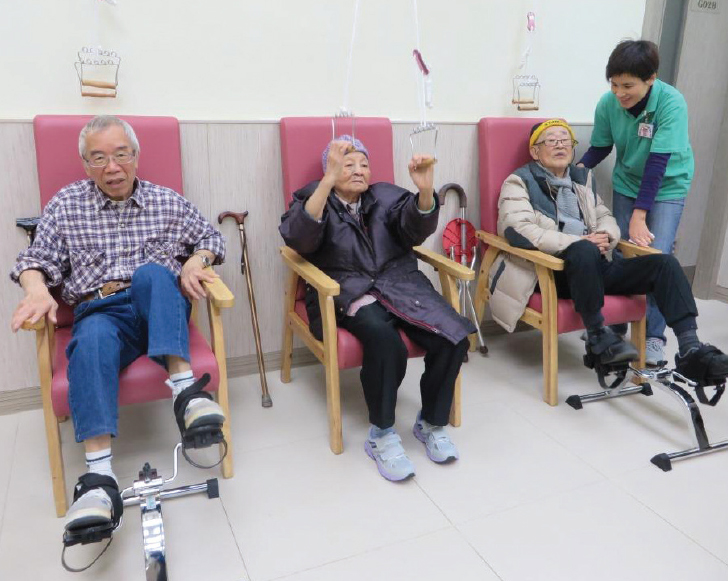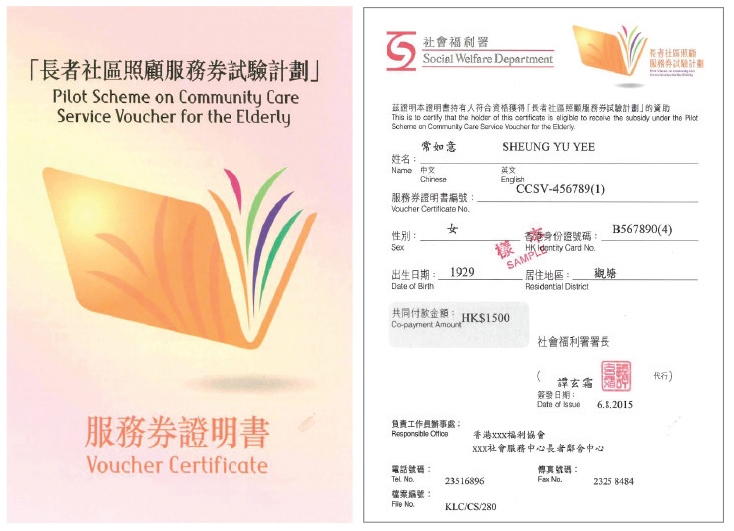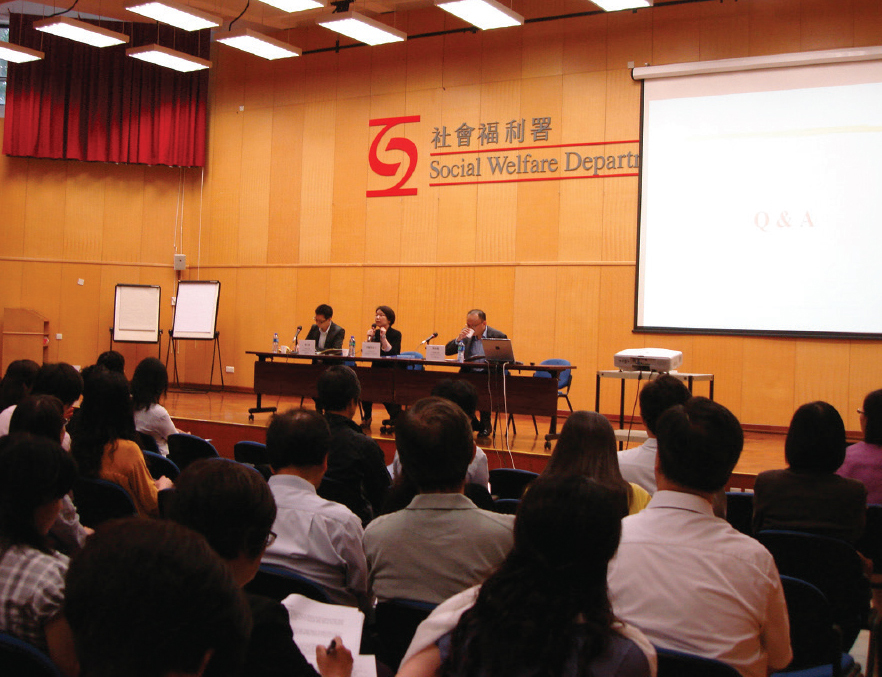Ingenious Use of Market Forces
to Innovate a New
Elderly Service Model
Social Welfare Department
2015
Hong Kong is facing an aging population, resulting in an urgent need for the government to take measures to improve elderly services, and to ensure the sustainability of these measures.
Introduce competition and let money follow the users
The Social Welfare Department (SWD) launched the "Pilot Scheme on Community Care Service Voucher for the Elderly" (“Pilot Scheme”) in 2013 to explore how to improve community care services for the elderly through a new funding model. Under the conventional model, the elderly persons are assigned to specific agencies for certain services, which in turn receive subsidies directly from the government. Under the Pilot Scheme, the government will issue a monthly voucher to each participant with a value of $6,250 for purchasing services. The elderly persons can choose their agencies from the list of recognised service providers, the type of services and the service packages. The elderly persons can also change their service providers. Thus, only service providers with good service quality can attract users and obtain funding under the Pilot Scheme.
Under the conventional model, the elderly person pays a maximum of up to around 10% of the service cost. The Pilot Scheme follows the “affordable users pay” approach that the value of the voucher includes a co-payment amount borne by the elderly persons, which is determined by their household income. Their payments range from 8% to 40% of the service cost.
Further develop the market to meet the needs of the elderly
The first phase of the Pilot Scheme has a total of 62 service providers and has created more than 950 day care service places, an increase far beyond expectation. The Pilot Scheme has successfully attracted more service providers and encouraged them to increase supply through the introduction of market mechanisms. The “money-follows-the-user” approach promotes competition among service providers, thus prompting them to continuously improve their service quality and provide services catered to the different needs of the elderly.
As of August 2015, there are 2,500 elderly persons enrolled in the Pilot Scheme. According to a study conducted by the University of Hong Kong, the majority of respondents were “very satisfied” or “satisfied” with the Pilot Scheme and think that it provides them with more choices and elevates their self-perceived health level and quality of life while reducing their caregivers’ burden. The Pilot Scheme allows users to choose services which suit their needs, bringing a positive experience that makes them more willing to receive services. The fact that about 10% of the elderly participating in the Pilot Scheme are willing to pay a $2,500 service fee (about 40% of the cost) shows that the "affordable users pay" approach can be further promoted so that public resources can be better used to assist the elderly who are most in need.
The Pilot Scheme is a bold attempt and has achieved great success. It is not only an important step towards promoting the community care service industry but also a new direction for funding elderly services.



